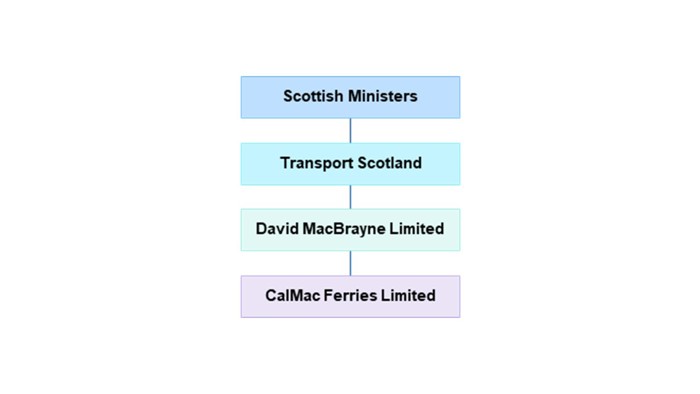At the top of this structure are Scottish Ministers, who set the strategic direction for ferry services through Transport Scotland. David MacBrayne Ltd (DML) acts as the holding company, providing oversight and assurance, while CalMac Ferries Limited (CFL) is responsible for day-to-day delivery of services across the Clyde and Hebrides network.
Operating under this model is not just about compliance – it is about creating a service that works better for the people who rely on it. By embedding stronger governance, clearer accountability, and closer collaboration with Scottish Ministers, we can focus on what matters most: a ferry service that is reliable, accessible, and responsive to the needs of island and coastal communities.

Governance Documentation
Strong governance underpins everything we do. Our governance framework is designed to ensure accountability, transparency and alignment with public service values, while enabling us to deliver the Clyde and Hebrides Ferry Services (CHFS3) effectively.
The documentation falls into two categories:
- Non-Departmental Public Body (NDPB) status – defining the relationship between Caledonian MacBrayne (through David MacBrayne Ltd and CalMac Ferries Ltd) and the Scottish Government.
- CHFS3 contract delivery – setting out the terms, funding and obligations for delivering ferry services under the current contract.
Although closely linked, these documents serve different purposes:
NDPB Status
CHFS3 Contract Delivery
- Opens in new windowGrant Agreement - Details the funding arrangements for delivering CHFS3, including conditions for the use of public funds and performance expectations.
- Opens in new windowGrant in aid letter - Issued annually by the Scottish Government, confirming the level of financial support for the year and any specific priorities or conditions attached to that funding






Share: